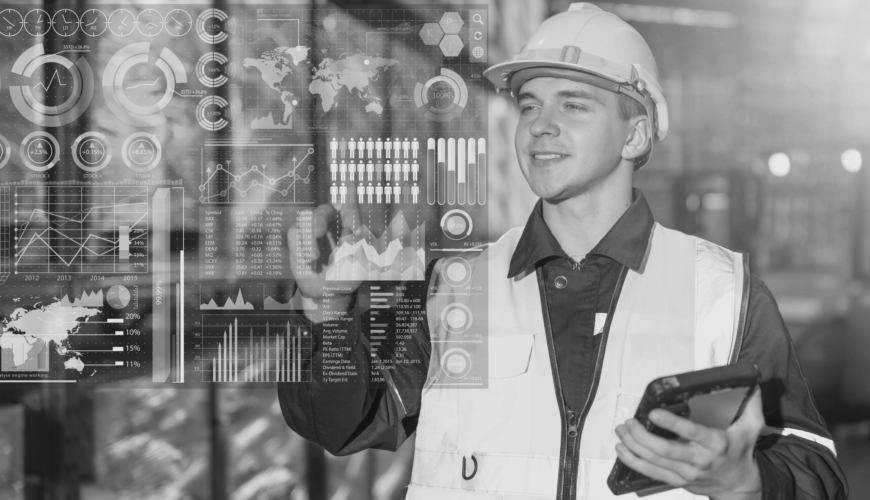The future of supply chain management is being shaped by a convergence of technology, sustainability, and human capital. Disruptions caused by global events, shifting consumer expectations, and rapid technological advancement have underscored the need for more transparent, resilient, and efficient supply networks. Let’s explore the major trends shaping the modern supply chain landscape, from digital innovation to sustainability and workforce development.
The Future of the Supply Chain: 8 Trends Shaping a Smarter, Safer, and More Sustainable Global Network
1. Supply Chain Visibility: A Foundational Priority
Supply chain visibility refers to the ability to track goods, information, and processes throughout every stage, from raw material sourcing to final delivery to the end customer. This transparency is vital for identifying potential disruptions, responding proactively to delays, and improving overall efficiency.
Organizations with high visibility into their supply chains can detect problems early, optimize logistics, reduce lead times, and improve customer satisfaction. Technologies such as real-time tracking systems, RFID tags, and integrated platforms allow businesses to gain end-to-end insights into their operations, which is crucial for agility in an unpredictable global environment.
2. Digital Transformation: Reimagining Operations
The shift to digital technologies, cloud computing, big data analytics, artificial intelligence, and the Internet of Things (IoT), is redefining how supply chains operate. Cloud-based platforms enable seamless collaboration and data sharing across global networks. IoT devices monitor the condition of goods in transit, while big data analytics deliver actionable insights from vast volumes of operational data.
Digital transformation empowers companies to make data-driven decisions, automate manual tasks, and create smarter, more responsive supply chains. This evolution is not a luxury but a necessity in an age where speed, efficiency, and adaptability are competitive differentiators.
3. AI and Automation: Smarter, Faster, More Accurate
Artificial intelligence and robotic process automation (RPA) are being increasingly integrated into supply chain management to improve forecasting accuracy, reduce human error, and streamline repetitive tasks. AI algorithms can analyze market trends, consumer behavior, and historical data to optimize inventory management and demand planning.
Automation tools are also revolutionizing warehouse operations, from autonomous robots handling inventory to AI-powered chatbots managing supplier communications. These innovations not only boost productivity but also free up human talent for more strategic tasks.
4. Blockchain: Enabling Trust and Traceability
Blockchain technology holds the potential to radically enhance supply chain transparency and trust. With its decentralized, immutable ledger, blockchain allows all stakeholders to track product movement and verify authenticity in real time. This is especially valuable in sectors like pharmaceuticals, food, and luxury goods, where traceability and provenance are critical.
Smart contracts, self-executing agreements coded into blockchain, can automate transactions, enforce compliance, and reduce paperwork, speeding up processes while minimizing the risk of fraud.
5. Cybersecurity: Protecting the Digital Backbone
As supply chains become more digitized, they also become more vulnerable to cyber threats. From ransomware attacks to data breaches, the consequences of weak cybersecurity can be severe, halting operations, compromising sensitive data, and damaging reputations.
Organizations must invest in robust cybersecurity strategies, including endpoint protection, regular audits, employee training, and multi-layered defense systems. Cyber resilience is no longer optional; it is a core component of operational continuity.
6. Sustainable Supply Chains: Aligning Profit with Purpose
Consumers and investors are increasingly demanding responsible and sustainable business practices. This has put environmental and social governance (ESG) at the heart of supply chain decision-making. Companies are focusing on ethical sourcing, minimizing carbon footprints, ensuring fair labor practices, and adopting circular economy principles.
Sustainable supply chains not only fulfill regulatory and ethical obligations but also present opportunities for innovation, brand loyalty, and long-term cost savings.
7. Supply Chain Resilience: Building for the Unexpected
From pandemics and climate events to geopolitical tensions and raw material shortages, global supply chains face an increasingly diverse list of threats. Building resilience, the ability to anticipate, withstand, and recover from disruptions, is a strategic imperative.
This includes diversifying suppliers, investing in local or regional production capabilities, maintaining safety stock, and using scenario planning tools. Resilience is not about avoiding risk entirely but about managing it intelligently and ensuring continuity under stress.
8. Talent Development: Bridging the Skills Gap
The modern supply chain demands a new generation of professionals skilled in data analytics, logistics technology, and strategic thinking. However, there’s a widening talent gap as companies struggle to find individuals with the necessary technical and leadership capabilities.
To bridge this gap, businesses are investing in employee training, partnering with educational institutions, and fostering cross-functional expertise. A future-ready supply chain is built not just on technology, but on people equipped to lead and innovate.
Conclusion: Toward an Intelligent, Ethical, and Resilient Supply Chain
The future of supply chain management is being shaped by a convergence of technology, sustainability, and human capital. Organizations that embrace visibility, digital transformation, AI, blockchain, and sustainable practices will be better equipped to navigate uncertainty and seize new opportunities.
As supply chains become more complex, the need for integrated, transparent, and resilient systems is more critical than ever. By focusing on both innovation and integrity, businesses can build supply chains that are not only more efficient but also more trustworthy, inclusive, and future-proof


